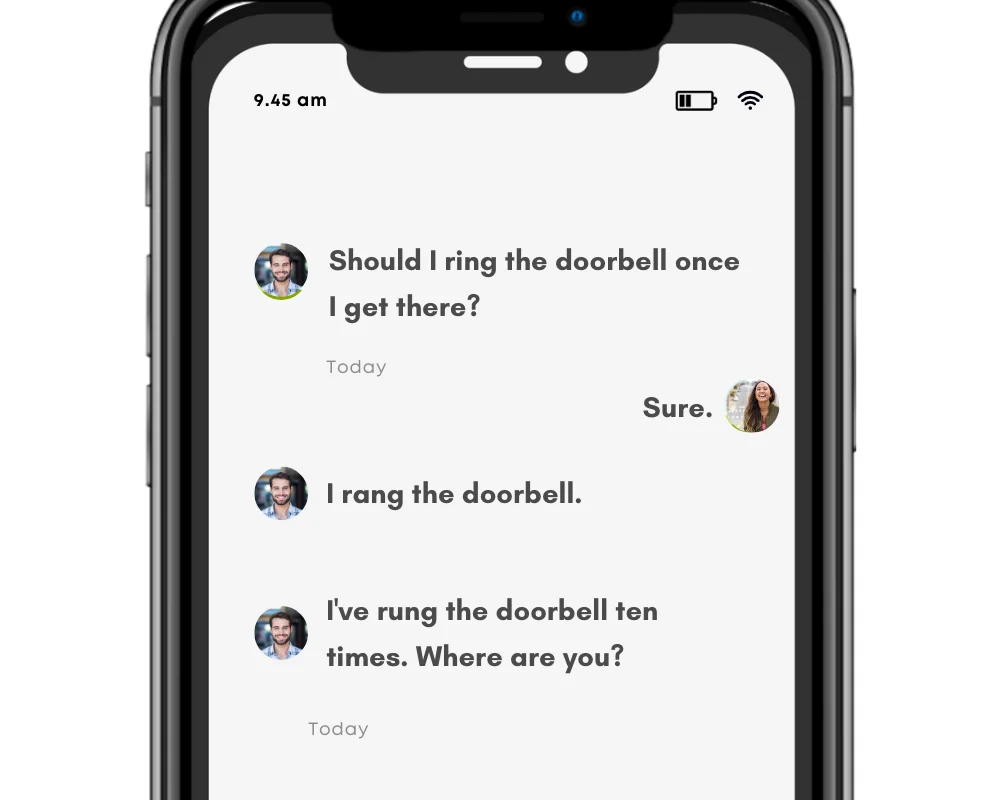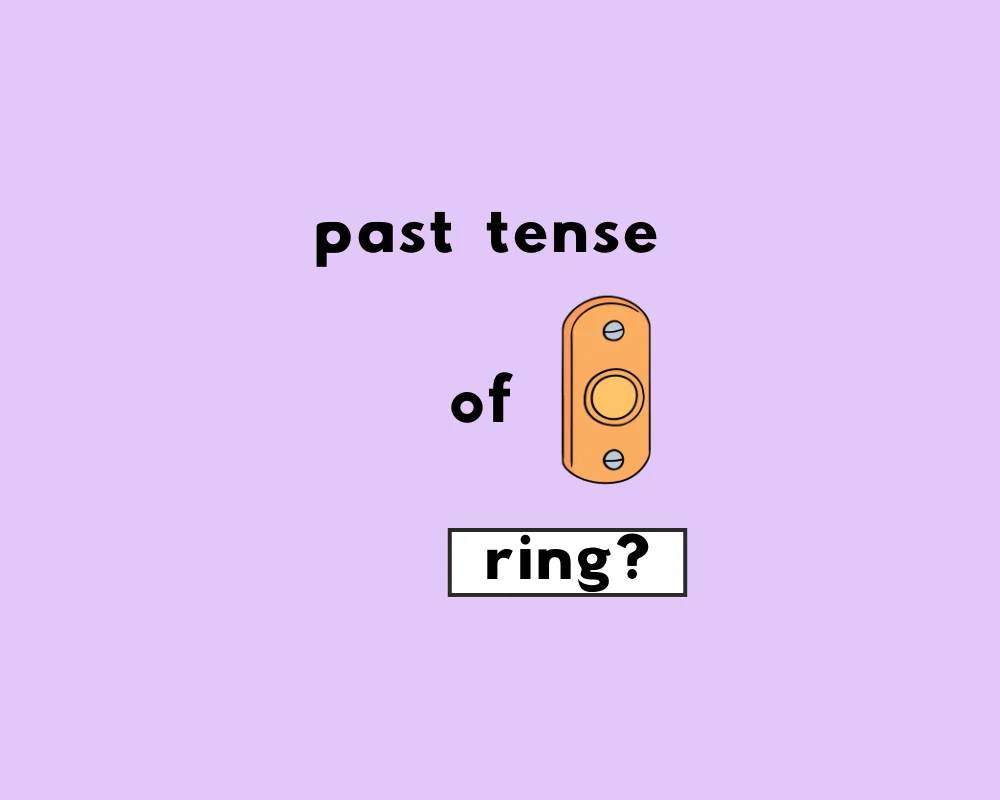
Contents
Toggle
What’s the past tense of “ring”?
Is it, the phone rang or rung? More specifically, what’s the correct past tense of the verb, ring?
Let’s ring in on this lesson, folks, in the sections below.
Meaning + forms of “ring”
As a transitive or intransitive verb, to ring means when something “sounds resonantly or sonorously: the doorbell rang“. Also, in regular conversation it can mean to phone or call someone: I’ll ring you later, means call you later.
Of course, this is distinct from its definition as a noun and piece of jewelry, (the one you wear your fingers, such as an engagement ring).
| present | past | future | |
| simple | I ring | I rang | I will ring |
| continuous | I am ringing | I was ringing | I will be ringing |
| perfect | I have rung | I had rung | I will have rung |
| perfect continuous | I have been ringing | I had been ringing | I will have been ringing |
When to use rang vs. rung
simple past: Have you rang the doorbell?
past perfect tense: She had rung the doorbell twice before someone finally opened it.
To communicate in the passive voice, we use the past perfect tense which has a sentence object. It’s formation is had + rung [past participle]. The same is true for all other verbs, but note that regular verbs ending in “-ed” appear the same as a past tense and past participle verb form.
Irregular verbs like “ring”
These other verbs behave the same way as “ring”, and likewise switch in form from the present, past and past participle. Conveniently, a quick way to learn your irregular verbs is by grouping them into similar sounding conjugation patterns (as you’ll see from the chart below).
| base verb | past tense | past participle |
| stink | stank | stunk |
| shrink | shrank | shrunk |
| sing | sang | sung |
| sink | sank | sunk |
| ring | rang | rung |
| spring | sprang | sprung |
| drink | drank | drunk |
Note that not all verbs that rhyme with ring follow the same verb conjugation pattern; bring and sting, for example, are brought and stung respectively, for both their simple past and past participle forms.
“Ring” used in the present & past tense
| Sentence examples: ring in the present tense |
| We were startled by the ring of my cell phone. Just ring for the nurse if you need her! I’m just waiting for the phone to ring. No good calls ring in at that time of night. Will you answer the telephone if starts ringing? |
| Sentence examples: ring in the past tense |
| His phone rang as he reached for a dumbbell. The phone rang ten times before Lisa gave up. The church bells rang. She realized the doorbell had rung not once but twice. The bell has rung for a long time. |
Practice questions: forms of “ring”
| Questions | Answer options: |
|---|---|
| 1. True or false: “Ring” is a regular verb. | a. true b. false |
| 2. True or false: “To ring” looks the same in the present and past tense. | a. true b. false |
| Choose the correct verb form to complete each sentence: | |
| 3. I can ___ the doorbell when I arrive. | a. rung b. rang c. ring d. ringing |
| 4. I have ___ the alarm bell several times during fire drills. | a. rung b. rang c. ringing d. rings |
| 5. Yesterday, I ___ my friend’s phone but she didn’t answer. | a. ringing b. ring c. rang d. rings |
| 6. I am ___ the dinner bell to call everyone to the table. | a. ringing b. rung c. rang d. ring |
| 7. She ___ the bell three times before I was near. | a. had rung b. have rung c. is ringing d. was ringing |
| 8. The bells of the churches ___ as they passed. | a. are rung b. were rung c. is ringing d. was ringing |
| 9. She ___ up to discuss the divorce. | a. had rung b. rings c. ringing d. was ringing |
| 10. He said he ___ from London. | a. rang b. rings c. ringing d. was ringing |
Answers
- b
- b
- c
- a
- c
- a
- b
- b
- a
- d
Origin of the word/verb “ring”
From etymology online on ring (v.):
Old English hringan “cause (a bell) to sound;” also “announce or celebrate by the ringing of bells,” from Proto-Germanic *khrengan.
Learn more about verbs
| Types of verbs & verb tenses | what’s the past tense of …? |
| forms of ‘to be’ | … seek? |
| auxiliary verbs | … teach? |
| present tense | … catch? |
| future tense | … buy? |
| past tense | … read? |
| perfect tense | … draw? |
| transitive vs. intransitive | … drive? |
| participles | … throw? |
| irregular verbs | … lead? |
| modals | … win? |
Sources










